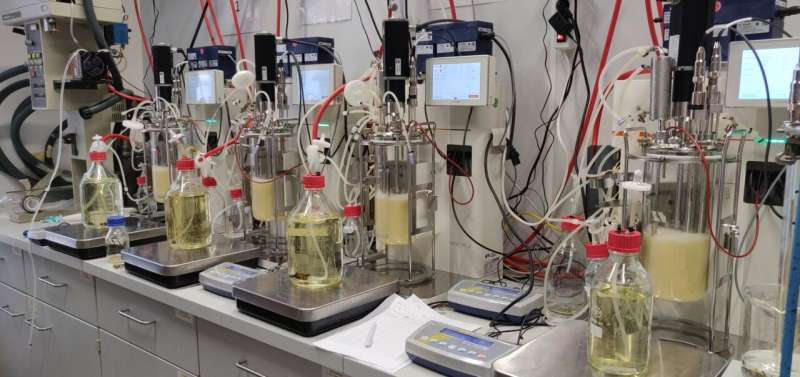Biolab replaces horseradish roots for production of important enzymes
Date: 23.6.2023
It is one of the most important enzymes in medical diagnostics: Horseradish peroxidase is used for many medical products – it is often used when a color change of a test strip is to detect the presence of antibodies or other proteins.
 Recently, however, there has been a shortage of horseradish peroxidase, because it is obtained from horseradish roots, and this has major disadvantages: The agricultural yield is not always the same, the roots produce not just one version of the enzyme, but a whole family of similar enzymes, in varying amounts.
Recently, however, there has been a shortage of horseradish peroxidase, because it is obtained from horseradish roots, and this has major disadvantages: The agricultural yield is not always the same, the roots produce not just one version of the enzyme, but a whole family of similar enzymes, in varying amounts.
For this reason, scientists at TU Wien decided to develop a reliable, precise synthesis method in the laboratory. After years of research, they have now succeeded: The production of horseradish peroxidase is now possible with the help of E. coli bacteria. Only one specific enzyme is produced in a precisely reproducible manner, and the process can be scaled up to large-scale industrial production. Having already applied for two patents, TU Wien is now looking for industrial partners.
Now that it has been possible to produce horseradish peroxidase in a precisely defined, highly pure manner, this means that completely new applications beyond diagnostics are now conceivable. "For example, one could now also use horseradish peroxidase for cancer therapy by coupling it to antibodies, which then dock very specifically to cancer cells," says Spadiut.
Image source: TU Wien.























